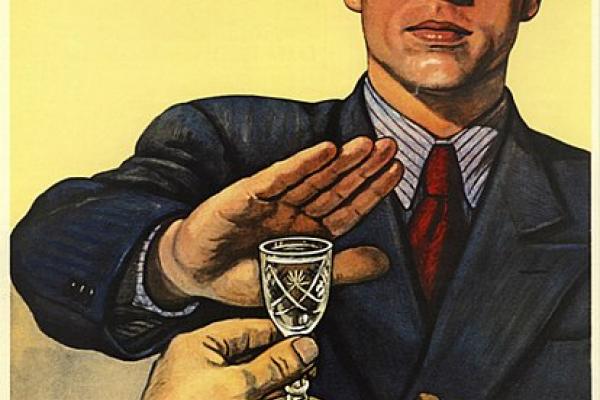Looking at Russian culture through vodka

New GE online course among many summer offerings within language departments
In Russia, vodka is more than a popular spirit used for celebratory toasts.
The distilled liquor is deeply infused in Russian culture and has shaped the country’s politics, state policies and public health agendas since the days of Ivan the Terrible.
Vodka in Russian Society and Culture: Deconstructing Myths, a new online general education course available to students this summer, explores the role of alcohol in Russian culture and dispels myths often associated with the country and vodka.
Enrollment is underway for summer semester, which is an ideal time to dive into GE coursework. By enrolling in summer courses, students can work toward their degree faster and spend less money, as summer term instructional fees and general and non-resident surcharges are discounted 25% compared to autumn and spring semesters.
Vodka in Russian Society and Culture: Deconstructing Myths will only be offered online during the summer, said Derek Peterson, academic program coordinator in the Department of Slavic and East European Languages and Cultures.
The course covers the role alcohol may have played in key moments in Russian history. The course also examines how state leaders managed public health concerns around vodka as well as whether or not there are any comparable lessons with how the U.S. responded to substance abuse issues such as the opioid crisis.
“Examining vodka culture is an interesting way to look at important Russian leaders and events, as well as how Russian society changed over time,” said Peterson, who teaches the course.
The course, which was previously offered as a one-credit online course, is now three credits and counts as a GE in cultures and ideas and global studies.
There won’t be any vodka samples during the class, Peterson said. But students can visit a distillery for extra credit.
The university’s language departments have a host of GE offerings available to students, including new online courses. They include:
- Modern Russian Experience through Film, which explores some of the most revealing hopes and disappointments of Russian people presented in internationally acclaimed Russian films. The course, from the Department of Slavic and East European Languages and Cultures, counts as GE in visual/performance arts and global studies.
- The Holocaust in German Literature and Film, which covers an analysis and discussion of works about the Holocaust from the perspective of German literature and film. The course, from the Department of Germanic Languages and Literatures, counts as a GE in literature or global studies.
- Iranian Society Today: Internal Conflicts and Social Movements, which examines Iranian society after the 1979 revolution as well as globalization, media politics, secularization and social movements in contemporary Iran. The course, from the Department of Near Eastern Languages and Cultures, counts as a GE in global studies and social science individuals and groups.
In addition, French 1802 is tackling a new subject this summer: The Black Panther’s Trail: Art, Power, and History in Francophone Africa, which uses the Marvel Studios-produced film, “Black Panther,” as an entry point to explore how politics, culture and colonial legacy shape the Francophone world today. The course, from the Department of French and Italian, counts as a GE in cultures and ideas.
